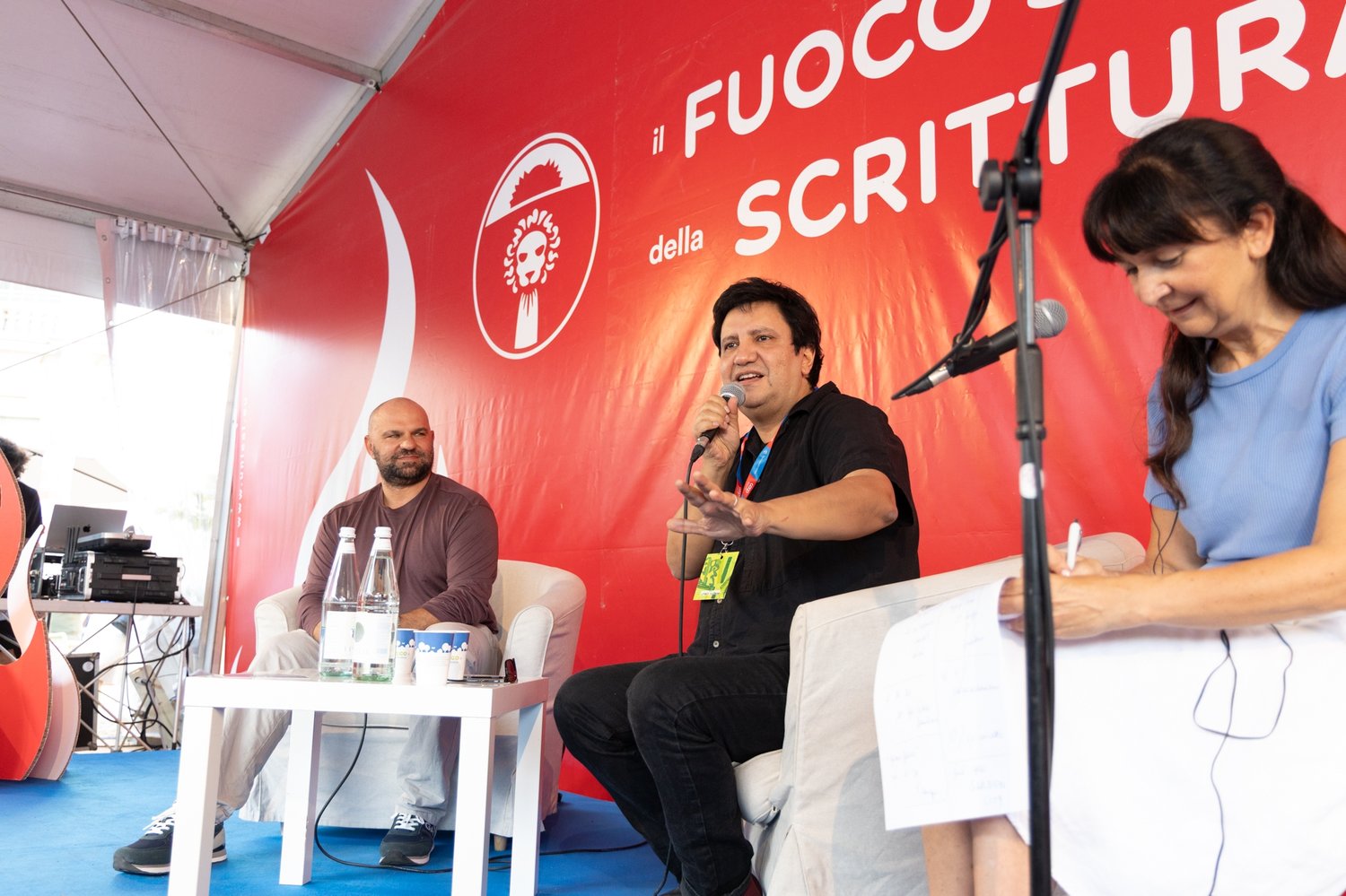



All Writers Write Badly
At Festivaletteratura, Chilean writer Alejandro Zambra offers an intimate account of his lifelong passion for literature and writing. In an informal atmosphere, the audience in Piazza dei Libri is quickly captivated by the writer's warmth and effortless witticism.
Zambra's love for writing is deeply indebted to his maternal grandmother, a woman he never saw reading, yet possessed a remarkable gift for storytelling. In 1939, Zambra’s grandmother lived through the devastating Chillán earthquake, which destroyed much of her city. Out of that catastrophe, however, she crafted countless tales. Some carried the weight of grief, while others revealed a surprising sense of humor, with playful narratives about those who had died. She believed that writing was nothing short of a necessity for children. For the young Alejandro Zambra writing was both a game and a habit - and, perhaps most importantly, a way to delight his grandmother.
Reflecting on the craft of writing, Zambra remarks, “All writers write badly”. For him, joy lies not in the perfection of the text but in creation itself. Literature, he explains, is messy, nourished by chaos. Even the writers we admire most, he notes, are often considered “terrible” by others. “When you say your favorite author is Flaubert,” Zambra joked, “someone will immediately respond, ‘Oh no, he’s terrible!’”.
When Zambra was fifteen, the dictatorship in Chile came to an end, and the transition to democracy began, a process that, in his view, still feels unfinished to this day. He reflects on the previous generation of writers, who were profoundly marked and constrained by censorship. For Zambra, writing is an act of liberation, and he cannot imagine what it would be like to create under such restrictions. To him, literature is inseparable from freedom. He admires the courage with which earlier writers faced censorship, insisting that censorship is nothing less than the imposition of silence. “A dictatorship triumphs”, he observed, “when people themselves decide not to speak, not to produce”.
He also points out the importance of translation, wondering whether a text might take on a different character depending on where the translation comes from. The versions of foreign literature he has most often read, he explains, usually came from Spain or Argentina, but never from Chile. Would it be the same?
At the end of the conversation, Zambra shares with the audience the advice he once gave to his son, in relation to his passion for music and guitar playing: “In life, follow what truly inspires you”. Luckily for all his readers, Zambra followed his passion for writing, a task that he describes not only as a profession but as a companion, a habit - like "physical exercise". Writing, he suggests, is both a form of freedom and a way of belonging, a practice that connects the individual to memory, to community, and to the world.